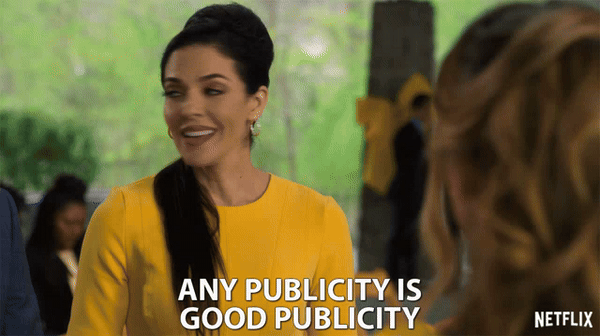There’s something terribly wrong with the current state of content marketing.
Specifically, I’m referring to Business-to-Business (B2B) content marketing and its inherent lack of creativity. For writers in the modern era of content overload, this lack of creativity can be a death sentence.
We all know that content producers don’t have long to get a reader’s attention. NewsCred Insights published a report reviewing over 10,000 pieces of content from 2016 and found that the average time readers spent on an article was 37 seconds.
We’ve discussed this in previous articles, but it bears repeating. Content writers don’t have long to make a case before their readers lose interest. Content, whether it comes in the form of site copy, marketing blogs, or social media posts, needs to be punchy and to the point.
And unfortunately, this punchiness is a rare sight in B2B copywriting.
The Blandness of Business Writing
We’re firm believers that the typical “business voice” so common across the web has grown stale and out of fashion. And I’m not talking about the oft-ridiculed business voice boogeyman that so many people use criticize poor copywriting:
“Optimizing performance analytics with cutting-edge industry leading best-in-class solutions…”
Yeah, yeah. This type of writing is lame and ineffective; we’re all aware of it. No, the problem I’m referring to is something far more sinister and prolific throughout the content marketing world: The blandness of business writing.
Try visiting a few B2B websites or B2B marketing blogs and see it for yourself. You’ll likely notice several trends. B2B copy is rife with phraseology that sounds like it was copy and pasted from a marketing textbook.
- Promises of efficiency.
- Guarantees of security.
- Assurances that this value-adding solution will turn you into an industry leader.
It sounds fine, until you start visiting more and more sites and see how prolific these types of mantras are. They sound great, so everybody uses them. But at a certain point, readers become inundated to these slogans and they lose their appeal. The writing isn’t exactly bad, but it doesn’t resonate. It doesn’t make an impact. The brands behind the words slowly start to blend together.
In short, it’s boring. And as noted author and photographer Cecil Beaton once said:
“Perhaps the world's second-worst crime is boredom; the first is being a bore.”
Don’t Be Afraid of Your Unique Voice
The problem with this kind of writing is that it’s hard to argue against. The common logic is that risk averse decision makers in the B2B industry are unwilling to take chances on brands that appear too radical or unprofessional. Thus, B2B brands try to market themselves as inoffensively as possible. And unfortunately, inoffensive means dull.
Taking an overly conservative approach to content writing can be even worse than being a jerk and having people hate you.
It’s true! There’s no such thing as bad press, right?
Well, let’s not go too far with that. You won’t get far in B2B commerce by insulting your readers. But the fact is that the majority of content out there just isn’t interesting enough to warrant attention.
Joint research conducted by Moz and BuzzSumo surveyed the performance of over 100,000 articles posted on social media and found that over half of them received two or fewer Facebook interactions.

Admittedly, the decision to stand out can be tough when B2B marketers have a slew of executives, shareholders, and other decision makers to answer to. But in truth, this fear of reprisal has no place in the copywriting process. Each brand has a unique voice with unique perspectives; no matter what industry they’re in, all businesses have something new to bring to the table. And sticking to the shopworn practices of the typical business voice prevent these perspectives from shining through.
We’re All the Same
Ultimately, marketing to a B2B audience is no different than marketing directly to consumers. Really, the biggest difference between the two is that B2B buyers are doing their research in the office instead of the home.
They still appreciate fun writing. They still appreciate those who offer a fresh take on stale material. And as long as your service can back up your words, they’ll certainly appreciate you taking the time to give them something interesting to read.




